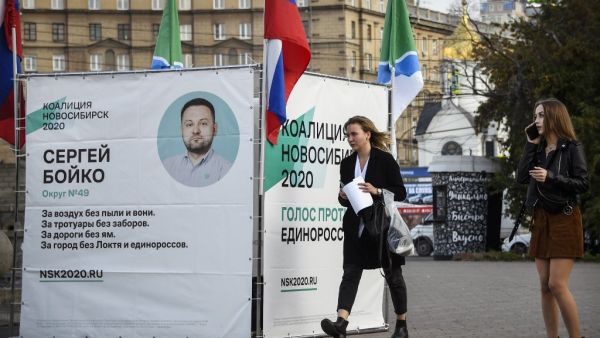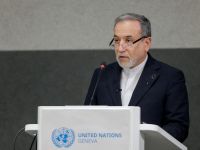Russia has warned Germany that it will be guilty of 'gross hostile provocation' if it fails to hand over Alexei Navalny's medical data after Berlin said the Putin critic had been poisoned with Novichok.
The country issued a strong protest earlier today over the alleged poisoning of the opposition figure after it denounced what it said were baseless claims and warned of a major risk to diplomatic ties.
The foreign ministry in Moscow said it had summoned German ambassador Geza Andreas von Geyr and protested 'unfounded accusations and ultimatums against Russia' and the 'obvious use of (Navalny's) situation by Berlin as a pretext to discredit our country'.
It again urged Berlin to respond to a request from Russian prosecutors for the evidence, including medical data, that led Germany to declare that Navalny had been poisoned with nerve agent Novichok.
Failure to provide the materials will be seen as a 'gross hostile provocation' that would be 'fraught with consequences for Russian-German relations, as well as a serious complication of the international situation,' the ministry said.
Navalny, a 44-year-old lawyer and anti-corruption campaigner, fell seriously ill last month as he took a flight in Siberia and was evacuated to Berlin for treatment.
Moscow went on a diplomatic offensive on Thursday over the case as it hit back at Western accusations and talk of new sanctions against Russia.
As well as summoning the German envoy, the foreign ministry issued a response to a G7 statement calling for those behind the suspected poisoning to be quickly found and prosecuted.
The ministry denounced an 'ongoing massive disinformation campaign' aimed at 'mobilising sanctions sentiment' that had nothing to do with Navalny's health or 'finding out the genuine reasons for his hospitalisation'.
'Unfounded attacks on Russia are continuing,' the ministry said, with a 'whipping up of hysteria' around the case.
Germany said last week there was unequivocal evidence that Navalny had been poisoned with Novichok - the same substance used in the 2018 attack on a former Russian double agent and his daughter in the English city of Salisbury.
Navalny's associates say the use of Novichok, a military-grade nerve agent, shows that only the Russian state could be responsible but the Kremlin strenuously denies any involvement.
Russian officials have repeatedly accused Germany of being slow to share the findings of its investigation despite the request from prosecutors.
The Navalny poisoning is the latest in a long series of assassination attempts against Kremlin critics.
Navalny's associates say the use of Novichok, a military-grade nerve agent, shows that only the Russian state could be responsible but the Kremlin strenuously denies any involvement.
Russian officials have repeatedly accused Germany of being slow to share the findings of its investigation despite the request from prosecutors.
The Navalny poisoning is the latest in a long series of assassination attempts against Kremlin critics.
This article has been adapted from its original source.








